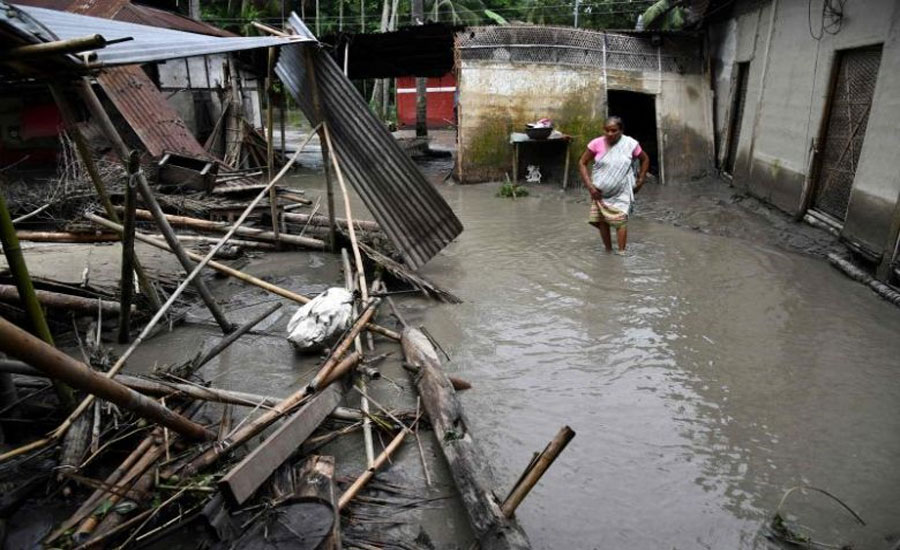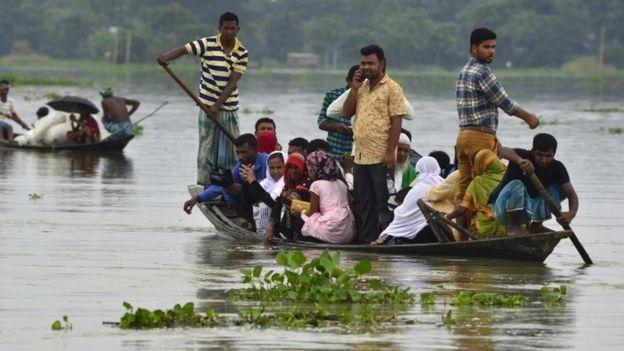Monsoon leaves dozens dead in Nepal, India and Bangladesh

KATHMANDU/NEW DELHI/DHAKA (Web Desk) - Dozens of people have been killed as monsoon floods rip through Nepal, Bangladesh and north-eastern India.
At least 65 people have lost their lives in Nepal as torrential rains hit the region, police said on Monday. Thirty people are reported missing amid floods and landslides, while 38 have been injured. Heavy rains have also caused deaths in overcrowded Rohingya refugee camps in Bangladesh. Millions of people have been affected by rising floodwaters across the region as part of the seasonal monsoon. Heavy rains are expected to continue in the coming days. Police have rescued more than 1,400 people from across Nepal since the deluge started there on Thursday, affecting more than 10,000 households. Bangladesh's Cox's Bazar - where more than a million Rohingya refugees are encamped after fleeing a military crackdown in Myanmar - has been hit by at least 58.5cm (23 inches) of rain this month, according to the country's meteorological department on Sunday. Hundreds of landslides since April have killed at least 10 people in the camps, including two Rohingya children in the last week. The Brahmaputra River, which flows through India, Bangladesh and China, has burst its banks, swamping more than 1,800 villages in India's north-east Assam state, Reuters reported on Monday. At least 1.5 million people have been displaced and 10 have died there, the news agency said. Image copyright EPA
Image copyright EPA






